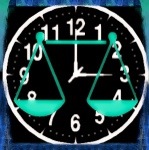In re Weber, 392 B.R. 760 (8th Cir.BAP 2008)
Adverse 7
This one was cool. I was litigation counsel at the district court level in an adversary proceeding challenging a Chapter 7 case due to fraud in US Bankruptcy Court in the Minnesota District. For evidence reasons (i.e. lacking), we did not move to amend the Adversary Complaint until less than a week (5 days) before trial. The claim we intended to add would alter the legal standard we needed to prove (used the loan proceeds to pay a tax debt under11 U.S.C. § 523(a)(14)) to prevail and have the debt exempt from discharge. It was short notice and on the eve of trial, but the amendment would not have involved any delay or further discovery. So I said.
Factually Fraudulent
Discretion Abused
We appealed on a complex bankruptcy ground (debt found not exempt under 11 U.S.C. § 523(a)(2)(A) or (B)) to the 8th Circuit’s Bankruptcy Appellate Panel (BAP) but to no avail (clear error standard with de novo review). I insisted on raising the simpler, procedural error claim the Rule 15 motion to amend was wrongfully denied (abuse of discretion standard though). As the appellate court said in the beginning of the Opinion, with an abuse of discretion standard they had to be left with a, “definite and firm conviction that the bankruptcy court committed a clear error of judgment in the conclusion it reached upon a weighing of the relevant factors.” A high bar to meet.
Harsh Denial
In denying the motion to amend before trial, the Judge did not mince words and it always sucks to read words like that about your conduct. As the BAP, citing the order denying the motion for leave to amend so it may live on forever provided in part:
None of these factual or legal issues are necessarily obvious and it would be unfair on the literal verge of trial to require the defendant to defend that claim. The plaintiff either intentionally or negligently failed to plead this cause of action originally or anytime prior to trial and it would be inequitable to allow her to do [so] (sic) now.
I never did understand why anyone would have intentionally left out the claim that wins in the end. But by the time the trial was over, it was obvious that if we could have amended the pleading and added the tax-related claim, we would have won. Hence, the necessity of the appeal.
Taking Exception
After quoting the stinging rebuke in the trial court’s order, the Appellate Panel shot right back, “We take exception to several of these points.” After that, the BAP went through the analysis they thought should apply.
They found the fact the debtor withheld discovery so we didn’t get the evidence needed to assert the claim until late in the game (and brought the motion the same day–5 days before trial) weighed in our favor. It was a fairly straightforward claim (for bankruptcy cases), that as usual the”§ 523(a)(1) claims turn on a simple determination of whether the tax debt paid arose from a tax year for which a return was due after three years before the date of the filing of a debtor’s bankruptcy petition.” If you followed that, go to law school.
Practically Speaking
The appellate court also found the amendment would not have resulted in unfairness or inequity to the Debtor, especially considering he was partly responsible for the delay in filing the motion to amend since he didn’t produce a check to the I.R.S. until well after it was due. And they were worried the debtor would get screwed?
But to top things off, the Appeal concludes the analysis with:
Finally, from a practical standpoint, it would have been a simple (and fair) matter to continue the trial to permit the Debtor to adequately prepare a defense to the § 523(a)(14) claim in light of the facts that this matter proceeded to trial less than five months after the complaint was filed, no previous continuances had been sought, and the only witnesses called to testify at the trial were Peterson and the Debtor.
In the end, the wise appellate panel of Judges decided a reversal of the order denying the motion for leave to amend was what lady justice said had to be done. Discretion was abused. The case was remanded back to the bankruptcy court and where we waited for a new trial date to be set.
Efficiently Effective
Instead of getting a date, the Trial Judge promptly reversed himself. By applying the same facts he already found at the trial to the new claim (technically not even plead out yet) he entered judgment in our client’s favor and the debt was excepted from discharge. It was nice to win. And I, for one, don’t mind winning when no one is looking since who else really understands what went on anyway unless they are directly involved. But the written opinion will live on!
There is a lot to be said about a truly efficient, no-nonsense Judge!


